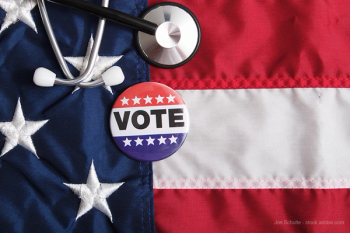
Telehealth helped Einstein Medical Center decrease readmissions and increase quality.

Telehealth helped Einstein Medical Center decrease readmissions and increase quality.

A survey of healthcare payers from North Highland offers four revealing findings about decision makers’ insights for the future.

A new report explores how healthcare executives can equip their healthcare organizations to make informed decisions about what type of reimbursement risk to take on.

Walgreens' new integrated support program aims to help patients with cancer manage the side effects of undergoing treatment. Here’s five things to know about it.

New research from Cardinal Health Specialty Solutions has surprising findings about oncologists from meeting MACRA requirements to burnout.

A new study of Medicaid-enrolled children with disabilities has revealing findings about the impact of care coordinator services on caregivers.

We asked the Managed Healthcare Executive editorial advisory board: “What is your New Year’s resolution and how do you plan to achieve it?” Here’s what they said.

The Integrated COPD Care Initiative in Alabama aims to reduce hospital readmission rates and acute to post-acute care-associated costs in COPD patients. Here are the results so far and insight from one of the program’s leaders.

Two recent studies on antibiotic use may indicate that antibiotic prescribing could be improving over time, but there’s room for improvement. Here’s four takeaways to get even better.

The books healthcare executives recommend to other healthcare executives.

Despite a scolding from President Trump over drug price hikes, drug giant Pfizer announced it will raise the prices of 41 medications in January. That’s 10% of its entire drug portfolio.

Frail patients are a forgotten patient group-here’s how they were left behind and what can be done about it.

A new Kaufman Hall report sheds new light on competitive pressures and key transformative cost areas.

The value and benefits of biosimilars are increasingly becoming more apparent. Here are four areas where they are growing the most.

This comprehensive, pay-for-performance approach drives clinical quality and affordability.

A new cost analysis study presented at Psych Congress 2018, highlights the substantial economic burden among U.S. veterans with treatment-resistant depression and what can be done about it.

The much-anticipated 2018 midterm elections are over, but the effects on healthcare are lasting. What’s next?

A new report from IQVIA reveals interesting findings on orphan drug spending and the impact of orphan drug biosimilars on patient costs.

As Amazon’s PillPack acquisition threatens pharmacies, CVS Health snaps back with its membership program, CarePass. Here’s how experts say it will affect managed care.

Early results from a first-of-its-kind study suggests that typical use of a fertility app is effective for avoiding an unplanned pregnancy. Payment mechanisms will need to be considered by payers.

A survey from Vizient identifies top strategies for the treatment of pain.

A survey from insuranceQuotes.com has surprising findings about open enrollment and the ACA.

A Wamberg Genomic Advisors’ Cancer Survey has revealing findings from people dealing directly with cancer.

The ability of an oncology practice to succeed in the OCM varies depending on this key factor, according to Avalere research.

With healthcare being a key issue in the midterm elections, here are 11 things healthcare executives should keep in mind.

A new study was conducted to better understand the landscape of coverage of non-pharmacologic treatments for chronic pain among public and private insurers in the United States. Here’s what it found.

UPMC Health Plan has recently entered into two value-based contracts for medications related to treating diabetes and opioid addiction.

The launch of a new connected health platform will aid in management of diseases such as diabetes.

A stepwise approach can be best. Here are seven rules to follow.

A Mayo Clinic study has surprising findings about how controlled substance agreements impact patients on long-term opioid therapy.